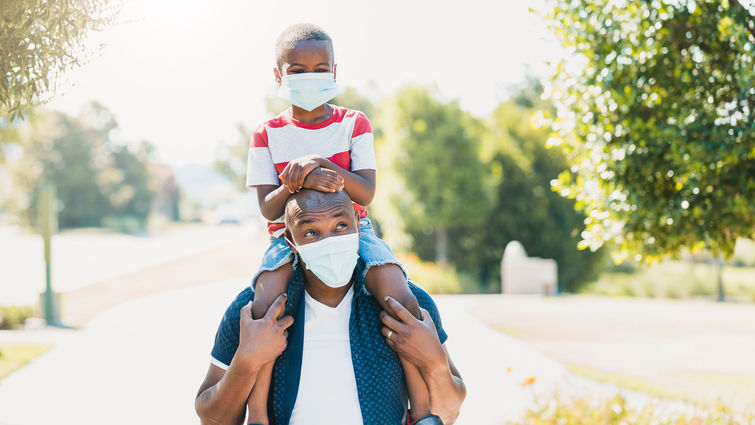
Lifestyle
Many states are beginning to lift restrictions and ease mask mandates as they move toward business as usual. As more of the population gets vaccinated and the spread of SARS-CoV-2 lessens, people may begin to let their guard down. However, doctors say it's still important to be careful since infected individuals can be asymptomatic but still contagious.
"As the world begins to get back to its pre-pandemic state, health should stay at front of mind," says Brenda Rea, MD, DrPH, PT, RD, lifestyle and preventive medicine physician at Loma Linda University Health. "There are things you can do to avoid infection by SARS-CoV-2 and other viruses that could harm you."
To stay healthy as you reintegrate into the world, Rea recommends six things you should make sure are integrated into your life.
Eat well.
Diet is a meaningful way to keep your mind and body running well. "Diet plays a crucial role in either increasing or reducing stress down to the cellular level," Rea says. "The fuel you put in your body can work as a defense against illness and help your body work at its peak performance level."
Exercise daily.
Daily exercise can reduce your chances of getting either a virus or a long-term disease. "Exercise can increase your immunity to certain illnesses while also reducing your stress hormones, which can increase your susceptibility to disease," Rea says. In addition, exercise helps strengthen your muscles — including the heart and lungs — so you're better prepared to fight illness.
Drink water.
When you integrate back into normal life, Rea says to be intentional about your water intake. "It helps rid your body of toxins, making sure your body systems function properly and helps prevent illness."
Rea also says that adequate water intake enables your brain to produce the necessary chemicals like serotonin or melatonin for optimal emotional and sleep health.
Time in the sun.
Rea says vitamin D — which you get from exposure to natural sunlight — is great for your immune system. "Consistent exposure to safe sunlight can help reduce the risk of illness, infections, some cancers, and even death after surgery," she says.
Mental wellness.
Stress has been shown to weaken the immune system, dampening its ability to function. "Taking care of your mental health can help you avoid mood disorders like depression or anxiety, reduce risk of infection, and less prone to feel lethargic or unmotivated," Rea says. To get back to normal with less stress, Rea recommends putting a priority on your mental wellbeing as well as your physical wellbeing.
Sleep.
Both the length and quality of sleep have been shown to impact immune health. Rea says your body needs sleep to fight infectious diseases, putting you at a higher risk when exposed to viruses. "For adults, sleeping 7-9 hours a night is optimal," she says. "Infection-fighting antibodies are reduced when you don't get enough sleep, making you more vulnerable to disease."
If you want to make sure you're at your best as states reopen, consider a lifestyle visit consultation with one of our Lifestyle Medicine physicians at the Center for Health Promotion. They will work closely with your primary care physician to improve your overall health and wellbeing. Please call the Center for Health Promotion at 909-558-4594 to make your Lifestyle Consultation visit today.
For more coronavirus information, visit lluh.org/coronavirus.
